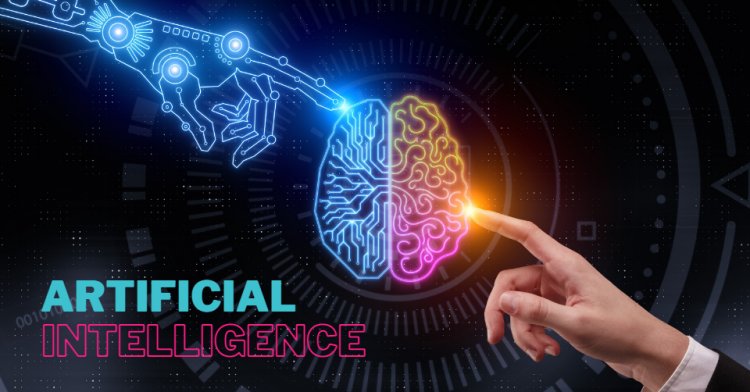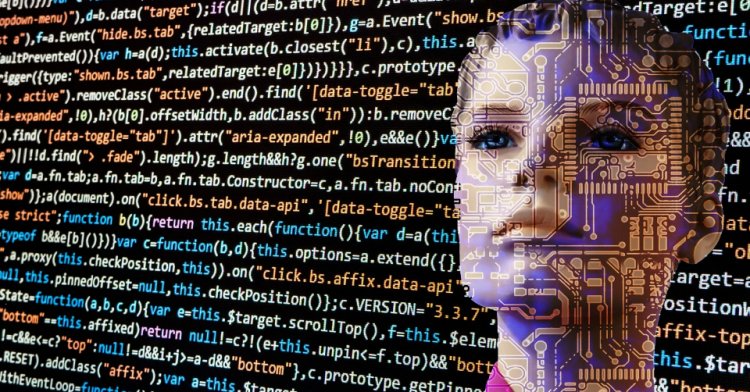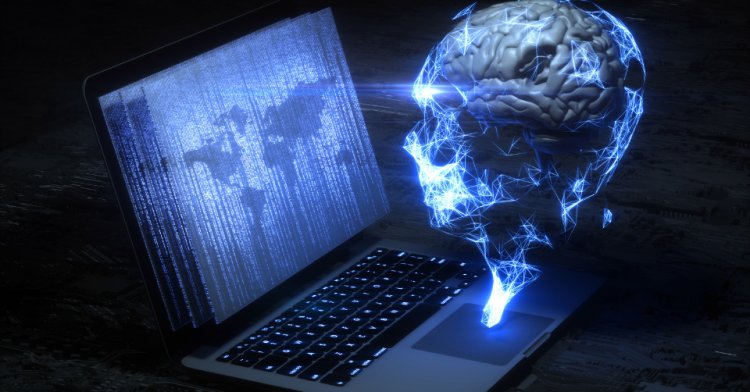Artificial Intelligence Future
AI is hailed as the ultimate future technology. The future of AI and how it will change every aspect of our lives is a hot topic. We spoke to several experts about an artificial intelligence future.

Artificial Intelligence Future
Artificial intelligence is not an unknown concept, it is everywhere on the news. It is no invention of this century, it was invented in the 19th century by Alan Turing. Alan Turing proposed a simple test called the “Turing Test” to determine if artificial intelligence can be considered intelligent enough to make human decisions. If yes, then computers can recognize images with high accuracy; if not, then they can never pass any real-world tasks and it will always remain as one of the greatest technological inventions of all time.

As per IBM’s 2017 research, we can anticipate that nearly half of the American population could be employed as software engineers by 2020, and by 2035 around 85% of these people would have their skills being used for creating artificial intelligence. Software companies like Microsoft, Alphabet (Google), Uber, Amazon, etc. are developing ways to use machine learning technology to improve customer service. They are also investing millions of dollars in R&D every year and they are planning to launch AI-powered assistants to replace many of their customer service representatives. Research has shown that people love getting responses from virtual assistants and people want a better experience from them in order to achieve more loyalty among customers. With the exponential growth of internet penetration over the past few years, it has become much easier to create a bot for customer support and to get a response from it as well. People who don’t like talking to a live person could now get automated replies from computers. The evolution of Internet technologies has created new opportunities that have never been seen before. For instance, Google Deepmind developed artificial neural network-based algorithms to learn how to control its smart devices more efficiently than ever before. In fact, it started using deep learning in 2014 for generating content which later became part of the Google Search engine.
In other words, the idea of artificial intelligence has spread rapidly over the globe. Even though there is still a lot left to be done before artificial intelligence can reach humans and their natural language processing capabilities, the future is bright for various fields like robotics and healthcare. However, due to a lack of sufficient funding, many countries have not yet included ethics in their education programs. As much as we have already solved world problems with digitalization and smart technology, a country can go back when it goes against ethical standards. But since the first industrial revolution, western countries have set up laws and procedures to protect their citizens from social risks. Also, the government has taken steps for regulating some innovative technologies that are emerging in society like robotics, nanotechnology, and so on. This paper discusses the impact of artificial intelligence on ethics in upcoming decades. So let’s start with our definition of what artificial intelligence is and then discuss it further.

Artificial Intelligence Definition
Artificial intelligence systems make machines capable of performing a specific task such as recognizing images or speech and making them act accordingly. They may be programmed to perform complex calculations like solving linear equations or performing complex calculations like searching data in databases. A program can think and develop itself in a similar way as a living organism does: its goals are constantly changed, but a biological brain does not. Computers do not have brains and so machines can give orders to computers that act independently to solve problems. Some examples are Siri for iPhone or Alexa for Android. All information available on the internet is stored in the cloud. There is no need for manual input like typing on keyboards or tapping on touchscreens. Nowadays, machines cannot distinguish between fantasy and reality. Data gets generated in huge amounts every day and every device that has connected to the internet has at least one application that uses artificial intelligence in form of natural language generation. Robots and drones are used in agriculture, construction, transportation, and manufacturing sectors to harvest raw materials or transform waste and pollutants into products that will provide better health in our lives.
Artificial Intelligence Threats
The main threat faced by humanity in terms of artificial intelligence is the rise of cyber-attacks which are becoming easily available. Cyber attacks can be carried out through malware infection, viruses, or network intrusions. Attackers are continuously evolving and they may come up with clever techniques, known as novel threat approaches. One example of this technique is described below
Fingerprinting: Fingerprints are generated automatically on mobile phones and tablets without even having to tap them. These fingerprints can be transferred to hard drives or cameras to prevent unauthorized access and storage of data. Another application for fingerprinting is taking photos where fingerprints are embedded in the camera lens and can be saved permanently on the cloud or on phone memory.
Data Loss: Computer hackers and malicious servers may try to steal personal protected information on personal devices that are linked to the cloud or on the network. If your private information gets compromised, you might get to lose valuable work and data. To keep your private information safe, consider encrypting it by either running strong encryption services or implementing encryption solutions locally on your device.
Privacy issues: When someone wants to access personal information stored on personal devices linked to the network, the answer may be rejected because of privacy violations. Many apps have features where the user needs permission to see information shared within his/her company and outside. To safeguard your information, implement two-factor authentication for mobile and desktop applications to ensure users are able to view only those files and folders that he/she is authorized to view.
Virus Attacks: Virus infections often occur with some common types. Viruses are usually created by hackers on purpose. Many types of viruses are designed for different purposes. Viruses can destroy vital programs and database servers. Hackers aim to manipulate viruses to trick the system into providing some useful information. Viruses can also lead to data loss as they bypass anti-virus applications which mean important information got lost or deleted along the way. Examples are the Trojan horse programs and email viruses that contain malicious code in order to infect programs or send emails.
Worms/Dbots: Sometimes people believe that robots need to be controlled by humans and if they do it successfully, it makes them like caring human beings who may help people out. On contrary, sometimes robots are programmed to kill and destroy humans. And as we mentioned in the introduction, software companies have been investing millions of dollars to develop artificial intelligence systems that act independently. They have come up with various methods to increase their machine intelligence and they are developing robot armies for war, transportation, and warfare. Most of these robots are programmed to carry out dangerous missions. After considering its effects on humans, robots should be restricted to military applications only to protect human lives.
Ethical Issues
Artificial Intelligence creates ethical issues. The major concerns arise in the areas of security, privacy, and accessibility of information technology. People, especially in lower-end jobs, suffer in terms of security and privacy breaches because the computer systems on their computers or smartphones are built using artificial intelligence. Not only do these systems store and analyze large amounts of information for financial gains, but they also make huge amounts of sensitive information vulnerable to attackers. An intelligent system can be hacked or manipulated while its owner is away from home and in that case, there is no good security measure that can help to recover stolen data. Since most of these machines can access personal information in the cloud, one might not know which information is stored by others. While these computers are storing a vast amount of data, they are unable to identify and address the problem effectively. Only after identifying the attack can the attacker stop the process and take back control. For example, hackers are working to break down the internal security on Apple devices and they are launching targeted attacks against them to obtain more information, in this scenario, it is only after they identified the breach that they are forced to repair the issue by stopping access to data and shutting down the servers. The question arises if these kinds of attacks should be prohibited by law or not. As it turned out, hackers had developed a computer hacking system that is capable of breaking down all sorts of sensitive data on computers. Thus, it is safe to say that the risk of cybersecurity is increasing tremendously and cybercrimes are becoming very frequent every second.
The role of Artificial Intelligence in modern culture
“The artificial intelligence is coming for the job,” said Stephen Hawking, co-inventor of artificial intelligence and author of The Singularity Is Near: When A Machine Demonstrates Itself As An Independent Being. He also says that people should embrace intelligence and stop fearmongering over it and instead look forward to its ability to deliver goods in small quantities, speed cars off the roads, and detect diseases in the early stages. If people do that, then they will be ready and prepared when it comes. So, rather than fear artificial intelligence will turn out to be another science fiction dream, everyone should actually prepare for it and just enjoy the experience of interacting with it whether it is the voice assistant or personal drone.
Artificial Intelligence Impact on Ethics in Modern Society
It has proven to be possible for anyone to make himself a successful businessperson even if he doesn’t have a Master's Degree or Engineering Degree in Science or Technology. In the 1950s, Mark Twain wrote several works about life, including How I Learned To Fly. His books were made popular in the United States and around 100 million copies were sold a year. But when his writing style changed in the 2000s, it proved that technology brought literacy to people and they learned how to control themselves with the right information. With the advent of cell phones and laptops, communication is easy and quick. Today, almost everything depends on computers, and computers are highly integrated into almost all activities. Therefore, with people relying on a wide range of technology, it becomes necessary for the authorities to regulate and monitor all the changes which may happen in terms of artificial intelligence.
Artificial intelligence is not an invention of this decade but people must understand the importance of keeping their minds and hearts open to change. If artificial intelligence is developed in the wrong manner, it affects humans negatively. Although artificial intelligence is extremely beneficial for businesses, ethical issues arise if nothing is done.
What's Your Reaction?




















